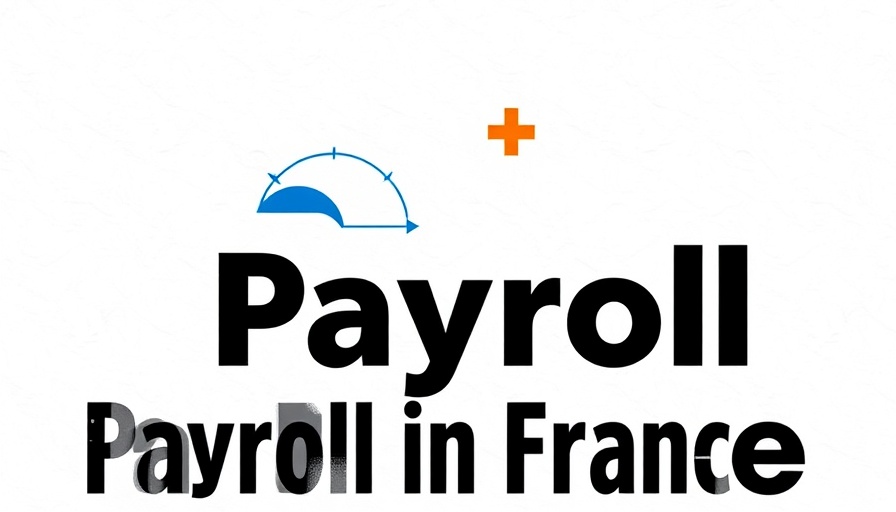
Understanding Payroll in France: A Business Imperative
For business owners looking to expand their operations in France, mastering the intricacies of payroll isn’t just a regulatory box to tick. It’s a strategic advantage that can significantly influence employee satisfaction, legal compliance, and financial health. As you plan for 2025, understanding how to navigate the French payroll landscape will be essential to maintaining competitive operations.
Decoding Payroll Taxes and Contributions
In France, payroll taxes and contributions are a complex web that requires careful navigation. Employers must systematically manage various contributions, including social security taxes, income tax deductions, and optional allowances. Social security, for example, underpins France's welfare system, necessitating both employers and employees to contribute substantial percentages from gross salaries.
Here’s a brief snapshot of essential contributions:
| Contribution Type | Employer Rate (%) | Employee Rate (%) |
|---|---|---|
| Health Insurance | 13.00 | 0.75 |
| Pension Contributions | 8.55 | 6.90 |
| Unemployment Insurance | 4.05 | 0.95 |
| Family Allowances | 3.45 | 0.00 |
These contributions not only ensure compliance but also lend credence to the organization’s commitment toward employee welfare — directly impacting company culture and morale.
Setting Up Payroll: A Step-by-Step Guide
The foundational steps in setting up payroll in France necessitate a strategic approach:
- Choose the Right Payroll Software: Leveraging advanced, user-friendly payroll software can streamline processes, reduce errors, and help manage compliance effectively.
- Work with Local Experts: Collaborating with local HR consultants can provide invaluable insights into regional laws and culture, aligning your payroll tactics with French business practices.
- Regularly Update Payroll Policies: Ensure that payroll policies are reflective of ongoing legal changes and tailored to meet the needs of a diverse workforce.
By implementing these steps, employers can build a robust payroll framework that supports both compliance and employee satisfaction.
Future Trends in Payroll Management
Looking ahead, the rise of AI in HR and payroll processing promises to revolutionize how businesses operate. Automation will shift the HR landscape, allowing companies to focus more on strategic decision-making and leadership rather than routine tasks. As AI-driven tools become more accessible, expect a transformative shift that encourages inclusivity and innovation in workplace management.
Empowering Business Growth through Compliance
Ultimately, navigating payroll in France presents unique challenges; yet, the reward for mastering this complexity is substantial. Business owners generating $2M–$10M+ in annual revenue must prioritize payroll compliance not only to stay competitive but also to foster an environment of growth and cultural significance. By committing to these practices, employers set the stage for expansive growth, sustainable operational workflows, and meaningful engagement with their teams.
As you step into 2025, remember that an informed payroll strategy is fundamental to unlocking your company’s potential for success. Embrace these insights to refine your HR practices and lead with heart.
 Add Row
Add Row  Add
Add 



Write A Comment